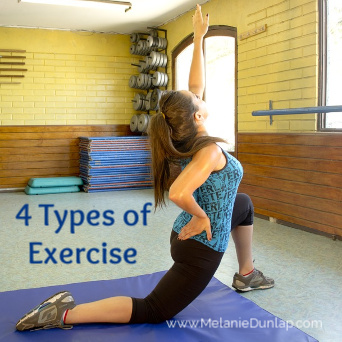This week I returned to my Tai Chi class after being gone for way too long. I don’t have a good reason for not going. I enjoy the class and the instructor, Dan of Anthem Tai Chi, makes it fun for all of us. So why was I gone for so long?
My priorities got sidetracked. I know how important exercise is for my health, I just forgot to make myself a priority. Even after reading my own blog, Random Acts of Selfish.
Getting dressed for class I was still wondering if I should go, the tightness of my workout clothes answered that question for me. But we need exercise for more than just weight loss.
Exercise can improve your health on all levels. We’re not just talking about being fitter and stronger. We’re talking about overall health and longevity.
Regular exercise improves your heart health, brain health, muscle and bone health, diabetes, and arthritis. Beyond those, it also reduces stress, boosts moods, increases your energy, and can improve your sleep.
The benefits of exercise come from improving blood flow and reducing inflammation and blood sugar levels. They come from moving your muscles (including your heart muscle) and pulling on your bones.
You don’t need to go overboard on exercise to get these amazing health results. As little as 30 minutes of moderate activity 5 days/week is enough.
And you don’t have to do a particular kind of exercise. All four types of exercise have health benefits. They are:
● Endurance (brisk walking, jogging, yard work, dancing, aerobics, cycling, swimming)
● Strength (climbing stairs, carrying groceries, lifting weights, using a resistance band or your body weight, Pilates)
● Balance (standing on one foot, Tai Chi)
● Flexibility (stretching, yoga)
Don’t forget, all exercise counts, even if it’s not doing a sport or in a gym. Weekend hikes, walking to the store and doing household chores also count towards your weekly exercise goal.
The effect of exercise on physical health has been studied extensively. Here are a few things we have learned:
Exercise for heart health
Exercise reduced cardiac mortality by 31% in middle aged men who previously had a heart attack.
Regular exercise reduces blood pressure in people with hypertension (high blood pressure).
Exercise for brain health
Exercise can improve physical function and quality of life in people with Parkinson’s disease. It also reduces changes in the brain associated with Alzheimer’s disease.
Exercise improved mental functions by increasing brain-derived neurotrophic factor (BDNF). BDNF is involved in learning and memory. It also increases the size of the part of the brain for memory and learning (the “hippocampus”); this was shown mostly with aerobic exercise.
Exercise for muscle and bone health
Regular physical activity can help maintain strong muscles and bones; this is particularly true for strength exercises. As we age, we naturally start to lose muscle mass and bone density. So, to prevent osteoporosis, exercise regularly.
And don’t forget that balance exercises and Tai Chi can help prevent falls.
Exercise for diabetes
People with diabetes who exercise have better insulin sensitivity and HbA1C values (the marker of glycemic control).
Exercise does this because by contracting your muscles, you’re fueling them with sugar in your blood. This helps to manage blood sugar levels better than without exercise.
These are just a few of the health benefits of exercise. By doing just 30 minutes 5 days/week, you can vastly improve your health. Since there are different benefits for different types, try mixing up what you do throughout the week. You don’t even need an “official” workout. Walking to the grocery store or doing household chores can count too.
